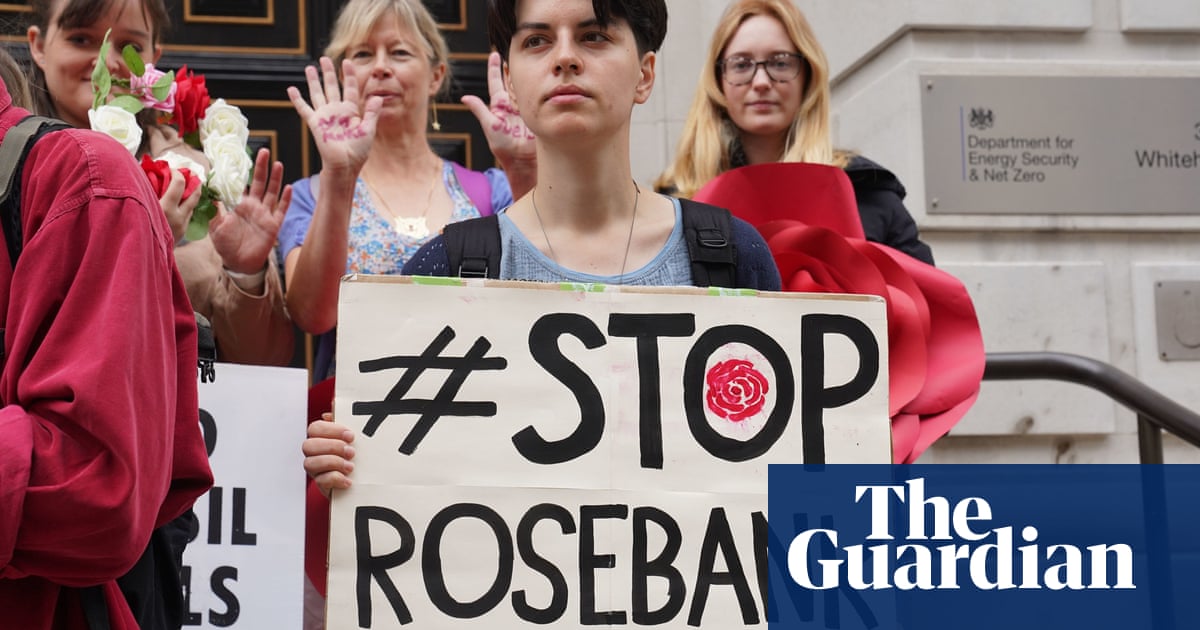My TL;DR:
Ministers have repeatedly claimed developing the huge oilfield off Shetland will improve UK energy security.
For example, in September, Rishi Sunak said Rosebank would help prevent young people from growing up “dependent on foreign dictators” for energy security.
Furthermore, in the king’s speech: “Legislation will be introduced to strengthen the United Kingdom’s energy security and reduce reliance on volatile international energy markets and hostile foreign regimes".
However, in a written answer to a parliamentary question, the government admits that the private companies extracting the oil will sell the vast majority internationally: “Around 80% of the oil produced in the UK is refined overseas into the products demanded by the UK market".
Alexander Kirk, of the climate justice group Global Witness, says “UK oil and gas is owned by the companies that extract it and sell it on global markets. New oilfields like Rosebank will only line the pockets of rich fossil fuel firms, it won’t help the millions of Brits that are struggling to pay their bills.”
Edit: Making title more clear.



You’re right, you can’t achieve collective action alone, but I’d argue that individual action, such as what you’re doing is part of that collective action, no?
Nope, it’s the complete opposite.
I can make different choices tomorrow: buy a Ford F-150, swap my heat pump for a gas boiler, and start buying more disposable crap and the resulting impact on the problem would be negligible. It’s nice to think that my individual choices matter, but on the scale that matters, they don’t even move the needle.
The Ford F-150 should be illegal and gas boilers should be banned or at least more expensive than heat pumps. That moves the needle 'cause it’s collectively applied to the wider public and (more importantly) the economy as a whole.
The problem comes with the idea that “I’m one of the people who needs to change, therefore my changing is progress”. While this is technically true, it’s effectively irrelevant because at the scale we’re talking about, individual contributions are statistically insignificant.
This is exactly why companies like BP & Shell have pushed the idea of personal responsibility so hard. They’ve reframed the debate into something about personal virtue rather than collective responsibility to ensure that nothing changes.
It’s one of the most insidious ideas around activism, that “voting with your wallet” works.
If I understand your comment correctly you are implying that individual actions matter little because it’s only on a large, collective scale that change can be implemented? My counter to that is you can do both. Personal responsibility and collective responsibility are not mutually exclusive. Plus I’d argue you’re more likely to foster collective responsibility from the actions of individuals, than you are waiting for a group to spontaneously decide to act as a whole.
Finally I’d also point out that there are degrees of change. My picking up litter on my daily walk is not going to make the world a better place, but it will make my neighbourhood a better place, and that’s valuable to. And in doing so it may inspire others to do the same, and from there you generate that collective responsibility you mention.
Or, in doing so, you’ll enable other people to become free riders off of your own efforts. “I don’t have to clean up after myself, /u/YungOnions@sh.itjust.works will take care of it.”
This has not been my experience when picking up litter in my local area.
Edit: Just to elaborate, it’s a few problem people who will always litter no matter what. People who do not always litter are more inclined to when they already see there’s litter about (“what’s the harm in adding more?”) but will feel guilty about littering in a clean street. I end up picking up litter faster than people add to it, meaning my local area is overall cleaner than what it was before.
Might be worth checking out this article which discusses some of the psychology behind littering.
Actually evidence suggests otherwise. Look up ‘Broken Window Theory’. Basically keeping an area clear of litter discourages people from littering, not the other way around.